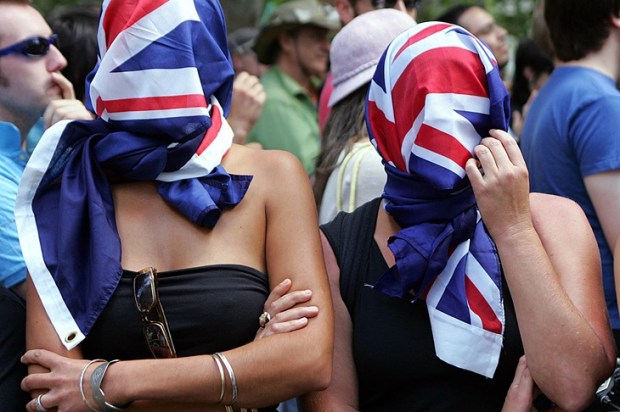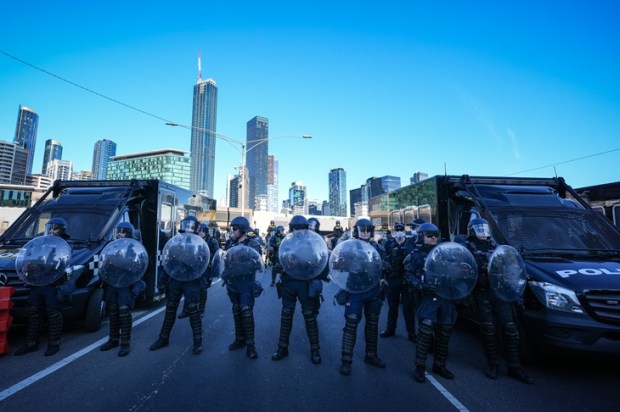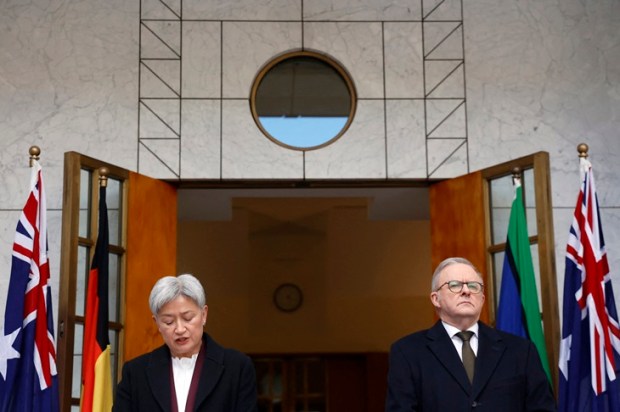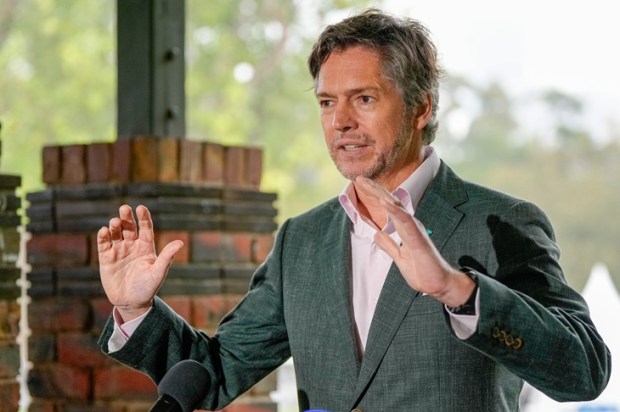‘The F***ing Grifters… That’s the podcast we should have launched with them.’ These were the frustrated words of Bill Simmons, Head of Podcast Innovation and Monetisation at the streaming service Spotify.
It comes as Harry and Meghan’s $US20 million Spotify fairy tale falls apart, with viewers turning off from the pair’s endless bitter complaints about their life of luxury and privilege.
‘I’ve got to get drunk one night and tell the story of the Zoom I had with Harry to try and help him with a podcast idea. It’s one of my best stories,’ Simmons added.
The Spotify deal for Archetypes was an important hook keeping the couple within the Hollywood circle of creatives and on the list for various champagne events. Recluse ex-Royals with no fresh gossip are not what you would call lucrative content. What else do they have to offer? Their fame is the product of a 1,200-year-old institution of which they are two of the least interesting characters.
If we’re talking about merit over inherited privilege, Archetypes entered the chart at #1 riding the Royal hype, but the show’s parade of ‘strong’ female guests finished off struggling to out-rate 12 Hour Sound Machines (no loops or fades) which boasts ‘12 hours of continuous noise you can sleep to’. Riveting.
The female empowerment narrative has become tiresome, particularly to female listeners who are too busy getting on with their lives to mediate on the ideology of imagined oppression from the world’s richest celebrity women. Besides, it’s unlikely Archetypes would be brave enough to talk about the real threat to female empowerment – the rise of gender dysphoric men.
When it comes to the other half of the Sussex equation, the 38-year-old Prince has been on a steep decline since cutting ties with his family in the most public and toxic way possible with a ‘tell-all’ book and various high-profile interviews containing damaging stories that were stringently denied (and often debunked) by Windsor.
He has made a lot of mistakes since then, including – and perhaps especially – the breaking of Royal protocol by commenting on political events. He has also engaged with online censorship. Given that the true position of Royals within the Westminster system is to protect the people from the government, the idea of a Prince is meddling in censorial conversations with Silicon Valley is repulsive to the standard he is meant to uphold.
This is the same power couple that made several attempts to brand the British public as ‘racist’ when what they were actually upset about was a lack of respect for tradition and culture.
Stars can identify as rebels if the public love them, but if part of that rebellion involves laying accusations against the public well … don’t expect them to keep queuing for autographs. If you are being parodied by South Park, the dream is over.
Prince Harry’s downfall has been sad to watch. Many remember him as the tragic, ginger-haired kid following along behind his mother’s coffin. That moment was a reminder that no amount of privilege, wealth, goodness, or affection can save a person from the cruelty of life. Good people die, and they leave behind innocent children.
Even Princess Diana, as loved and honourable as she was during life, was famous because of her Royal connection. It was a reality that she used to help others. Royalty is one of the oldest forms of celebrity along with war heroes, famous beauties, generals, and god-like practitioners of the current religion. Ordinary people follow the sagas of these larger-than-life individuals as a distraction. They dream of being princesses or strive to be admired for greatness.
There is nothing wrong with this human behaviour, and it cannot be erased. The communists tried to make everyone ‘equal’ and instead constructed themselves as the new social gods and the sole object of worship for the enslaved peoples of their regimes. Whether it is North Korea’s deified dictators or Xi Jinping brainwashing preschoolers to see him as divine, humans have to idolise other humans. At least when it comes to idolising Royalty, it doesn’t result in the consolidation of absolute political power. The Royal Family is a safe place for people to nest their celebrity affections.
Public admiration has its limits, as Prince Harry and Meghan Markle are discovering.
‘Meghan and Harry are the outlier [of Spotify’s plans]. I think they have come off as being lazy and difficult…’ said an industry insider, according to news.com.au.
Their claim to celebrity status and social obsession is their identity as Royals and later, Royal rebels. The further they drift from The Firm, the less interest they attract.
It is difficult to claim oppression from a $US14.7 million Tuscan-inspired mansion in California surrounded by a private security detail. The ‘woe is me’ narrative of despair has been stretched too thin and even American streaming services are finding it difficult to profit off the embers.
‘I wish I had been involved in the “Meghan and Harry leave Spotify” negotiation,’ added Simmons. ‘That’s a podcast we should’ve launched with them.’
It’s not the first time Simmons has had some harsh words for the pair, with a previous interview in The Big Lead containing the line, ‘Who gives a s**t? Who cares about your life?’
The ‘power’ couple still have a huge $US100 million Netflix deal, but so far very little has been produced.
People will always flock to public figures, living vicariously through the images put out by the world’s press. They’ll ‘oooh’ and ‘aaah’ at their gowns and chatter down the pub about the latest scandal. What they won’t do is fork out cash to follow the saga of an ex-Royal and former actress who lecture the peasants while living it up in a Californian palace. Outrage is the cheapest and lowest rung on the celebrity ladder before oblivion.

























